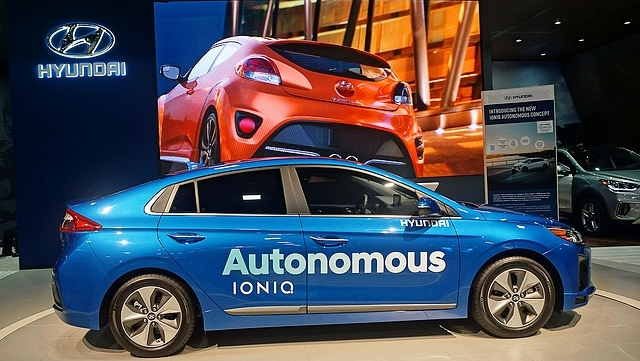Visitors to The Michigan Law Firm, PLLC blog may have been keeping up with news on autonomous technology from companies like Ford, Toyota, and Google. A company that we haven't yet mentioned however, is Daimler, the parent company of Mercedes-Benz. Daimler is also a member of the autonomous car industry and was one of the first to begin the automated transportation revolution with its development of self-driving trucks. The world of semi-trucks was transformed with the creation of the Mercedes-Benz Future Truck. The truck's design includes automated driving capabilities that will allow drivers to operate the heavy, cargo-bearing vehicle much more easily, efficiently, and comfortably. Diamler-created autonomous technology, called Highway Pilot, has set the Future Truck apart from competitors, allowing it to be the safest semi-truck of its kind. Daimler had previously planned to release the Future Truck in 2025, giving driver-less car onlookers a not-so-far away glimpse into what roads may look like in the near future.
Source: Daimler
Mercedes-Benz Highway Pilot Autonomous Technology
The Future Truck uses Highway Pilot software to autonomously control driving. Daimler envisions a workplace similar to a living room for truckers, where they can relax as they control driving with an iPad. Highway Pilot uses sensors to observe areas in front of the vehicle and to take over control in certain situations, such as during sudden stops. Highway Pilot allows the humans to do all the thinking, without incurring any risk, and leaves the driving to the truck itself.
Another characteristic of the Future Truck is vehicle-to-vehicle communication. Self-driving trucks will be able to pull over for emergency vehicles or slow down with traffic congestion, using data from the inter-vehicle signals. The trucks will be also be able to switch lanes and react to broken down vehicles on the shoulder, even steering and braking through construction zones with the help of its communication features.
Source: Daimler
Daimler has embraced the opportunity to transform the future of long-distance driving with the development of their Future Truck. Klaus Riff, Deputy Head of Prevention for G Verkehr–Transport Industry Professional Association, confirmed for Daimler that truck drivers face extreme demands everyday, due to factors like sustained attention, tight schedules, and high traffic density. Not only are individual drivers likely to benefit from automated technology, but entire business models will be rearranged. Business Insider mentions how labor costs will be controlled differently and workloads will be streamlined, affecting businesses and consumers with these steps towards more advanced trucks.
Daimler's Highway Pilot technology was officially tested in October 2015 with the Mercedes-Benz Actros truck, making it the world's first series-production truck to operate autonomously on a motorway. A top German politician, Winfried Kretschmann, and Dr. Wolfgang Bernhard, Board Member of Daimler AG responsible for Trucks and Buses, rode on the maiden journey of the Mercedes-Benz Actros with the Highway Pilot system, further displaying Daimler's commitment to ease of driving and safety precautions.
Autonomous Truck Regulations
Automated trucks, just like autonomous cars, have not been developed without closely monitored regulations. Four states in the US currently allow the operation of autonomous vehicles on public roads under certain conditions. Those states are Nevada, Florida, California, and Michigan. Europe has been facing more strict restrictions. Vehicle safety tests in the EU have been designed for cars with someone behind the wheel, meaning the Future Truck and other driver-less cars like it, fail these tests. Politico reported last year that there were no plans to review this law, setting Europe back from the US and other countries where autonomous driving has been tested on roads.
Source: Daimler
Additionally, policies have regulated truck driver workweeks, working to help reduce motor vehicle fatalities that drowsy driving from a combination of lack of sleep and long hours on highway roads may cause. Semi-truck drivers carrying cargo may drive a maximum of 11 hours after 10 hours off duty, and according to the Federal Motor Carrier Safety Administration (FMCSA), may only drive 60/70 hours on duty in 7/ 8 consecutive days. With the release of the Future Truck, truck drivers will be able to rest more often and therefore go longer distances in faster times. Human error will be minimized since trucks will be driving themselves.
Daimler’s automated semi-trucks will soon be approaching reality after years of planning, and the world will finally experience a new type of long-distance travel. Planes, trains, and automobiles are all slowly becoming autonomous, and the transportation industry is just on the brink of a revolution. Daimler and Mercedes-Benz have been a step ahead of the pack, and only have to look eight more years ahead to see The Future Truck front and center.
Source: Daimler
The future of semi-trucks is looking autonomous and automated. In the present time however, while trucks are still being operated by humans, automobile drivers should take caution when driving near trucks, as their size makes it harder for them to react quickly to vehicles around them. If you or someone you know has been involved in a motor vehicle accident involving a semi-truck or other large vehicle, please contact The Michigan Law Firm, PLLC at 844.4MI.FIRM for a free legal consultation.




















